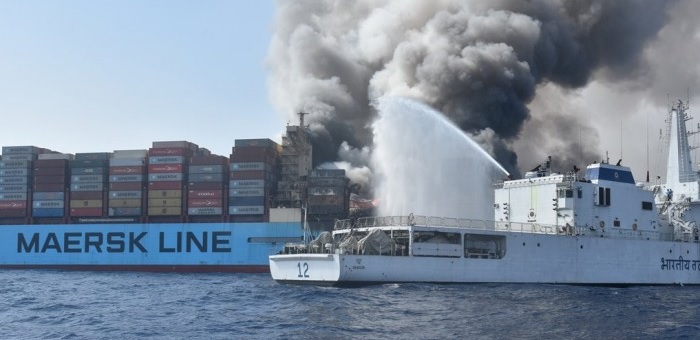Sean Dalton, the International Union of Marine Insurance (IUMI) Cargo Committee Chair, reported that the marine cargo market is still the largest commercial marine line of business in terms of premium income. However, 2017 was the worst year for natural catastrophe losses in the history of the insurance industry.
IUMI’s 2017 statistics indicated global cargo premiums amounting to US$16.1 billion. Worldwide, the cargo line has been unprofitable for several years with rising loss ratios and expense ratios and this is of great concern to underwriters.
[smlsubform prepend=”GET THE SAFETY4SEA IN YOUR INBOX!” showname=false emailtxt=”” emailholder=”Enter your email address” showsubmit=true submittxt=”Submit” jsthanks=false thankyou=”Thank you for subscribing to our mailing list”]
Sean Dalton explained that growth in global merchandise trade was expected to remain strong in 2018 and 2019, but this growth would depend on political and economic factors. This is somewhat concerning, as an increasing number of countries were restricting or restraining international trade and this was creating a protectionist operating environment.
What is more, 2017 proved to be the worst year for natural catastrophe losses in the history of the insurance industry. Hurricanes Harvey, Irma and Maria all caused cargo losses, especially with an increase in static risk cover.
Nat-cats and large/outlier losses, such as the Tianjin port explosion in 2016, have demonstrated the need for the cargo market to price realistically for such losses and develop risk adequate premiums.
Another factor that causes concerns is the container ship fires and mis-declared cargoes. These two are developing to worrying trends. A key example of this was the fire on board Maersk Honam, which killed five crew members. This incident can become the largest general average claim in history, Mr. Dalton explained.
Finally, cyber threats are still worrying cargo insurers, not only regarding immediate damages but also because of potential disruption to the onwards supply chain.
Supply chains will also be impacted by new developments. These initiatives can transform the global supply chain and will lead cargo underwriters to develop new products to manage this change. Additionally, new inroads in big data and analytics could provide cargo underwriters with better tools and capabilities to manage their business.


































































